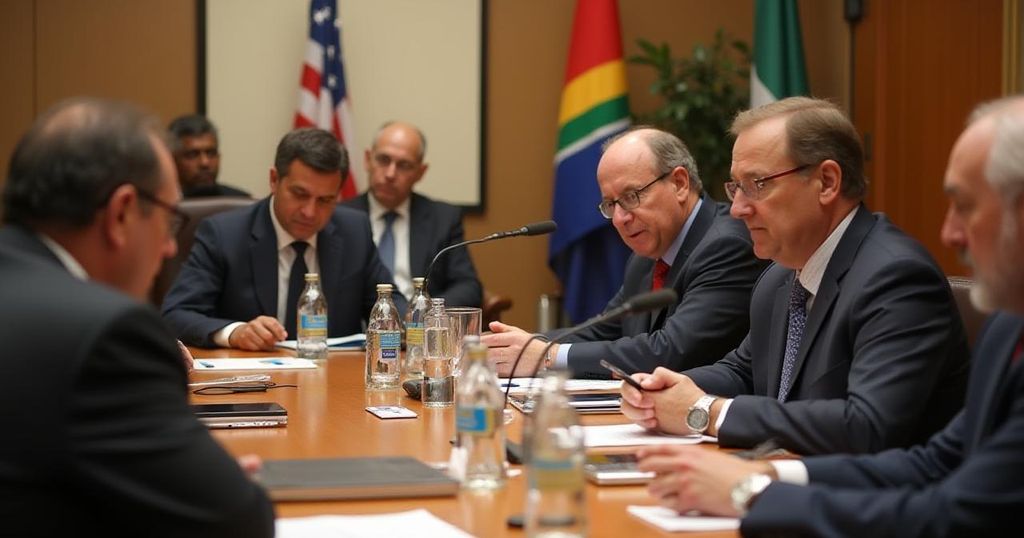Namibia and South Africa recently held a ministerial meeting in Swakopmund, expressing their support for Cuba and Venezuela amidst economic challenges caused by unilateral sanctions. They condemned Israel’s actions in Lebanon and demanded the removal of sanctions on Zimbabwe, while also addressing the situation in Western Sahara.
On October 14 and 15, a significant ministerial meeting took place in Swakopmund, Namibia, chaired by Peya Mushelenga, the Foreign Minister of Namibia, and Ronald Ozzy Lamola, the Foreign Minister of South Africa. During this event, the two nations reaffirmed their solidarity with Cuba and Venezuela, both of which are currently grappling with severe economic challenges exacerbated by unilateral sanctions. The ministers particularly criticized the longstanding economic, financial, and commercial blockade imposed on Cuba by the United States, advocating for an immediate cessation of this over 60-year policy. Moreover, they condemned Israel’s military actions in Lebanon, deeming them serious transgressions against sovereignty and international humanitarian law. The ministers called upon the global community and the United Nations Security Council to take necessary actions to uphold international law in this context. In addition to addressing the situation in Cuba and Venezuela, Namibia and South Africa also demanded the unconditional withdrawal of sanctions against Zimbabwe, which they believe adversely impact the socioeconomic development of both Zimbabwe and the wider Southern African region. The meeting further deliberated over the situation in Western Sahara, commending the recent ruling by the Court of Justice of the European Union (CJEU) on October 4, 2024, which found that the European Commission had violated the right to self-determination of the people of Western Sahara.
This article highlights the ministerial meeting between Namibia and South Africa, showcasing their support for Cuba and Venezuela amid their economic crises driven by international sanctions. The narrative emphasizes the broader implications of such sanctions not only for the affected nations but also for regional stability and compliance with international law. The meeting serves as a platform for these nations to exercise diplomacy and advocate for an end to measures they deem unjust, while also addressing other critical global concerns such as humanitarian crises and geopolitical disputes.
In conclusion, the recent meeting between the Foreign Ministers of Namibia and South Africa underscores a unified stance against unilateral sanctions impacting Cuba and Venezuela, reflects opposition to illegal actions by Israel in Lebanon, and emphasizes the need for the global community to uphold international law. It reveals the interconnected nature of these political issues, as countries rally together in support of collective welfare and regional stability.
Original Source: www.plenglish.com







